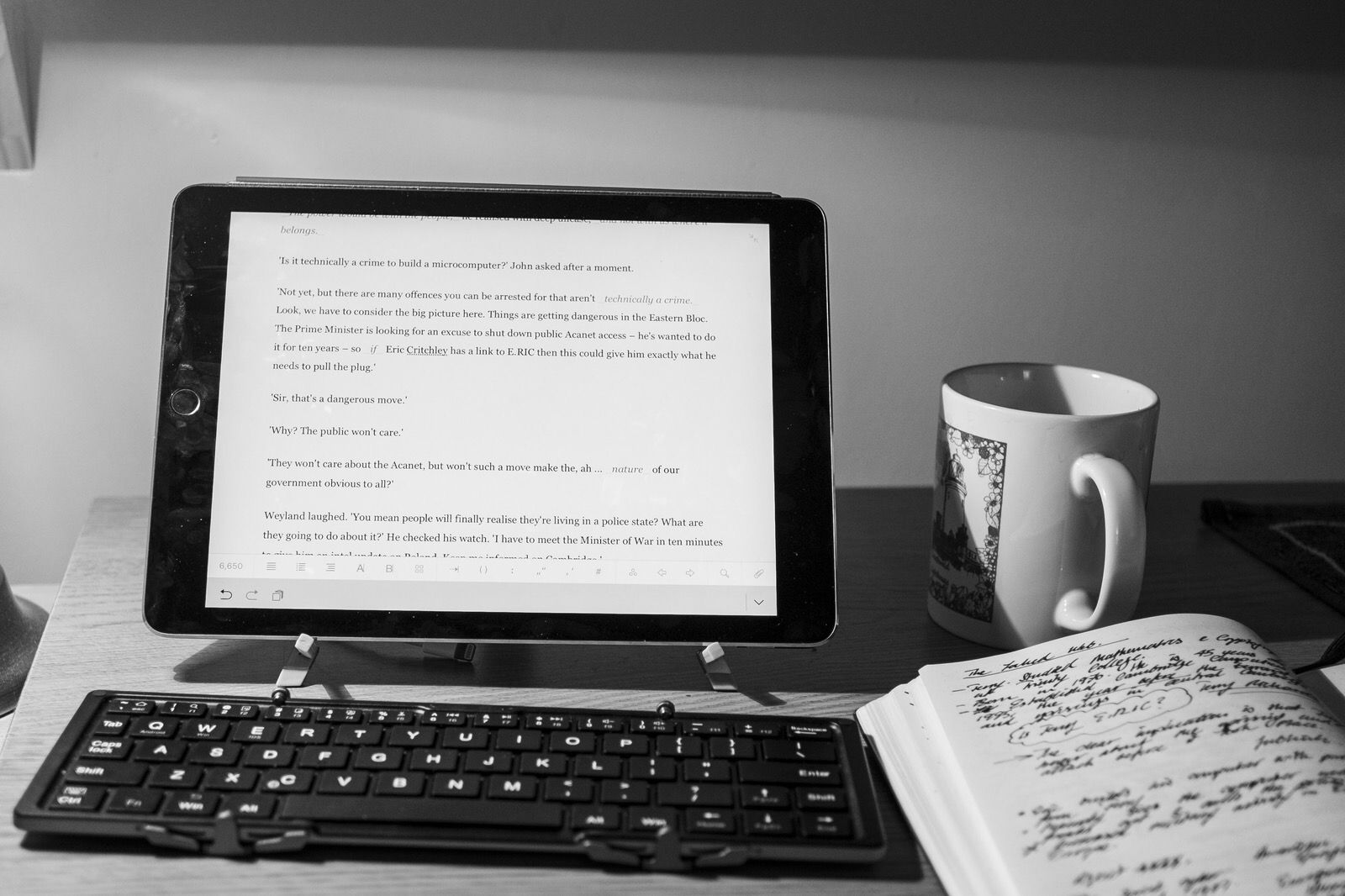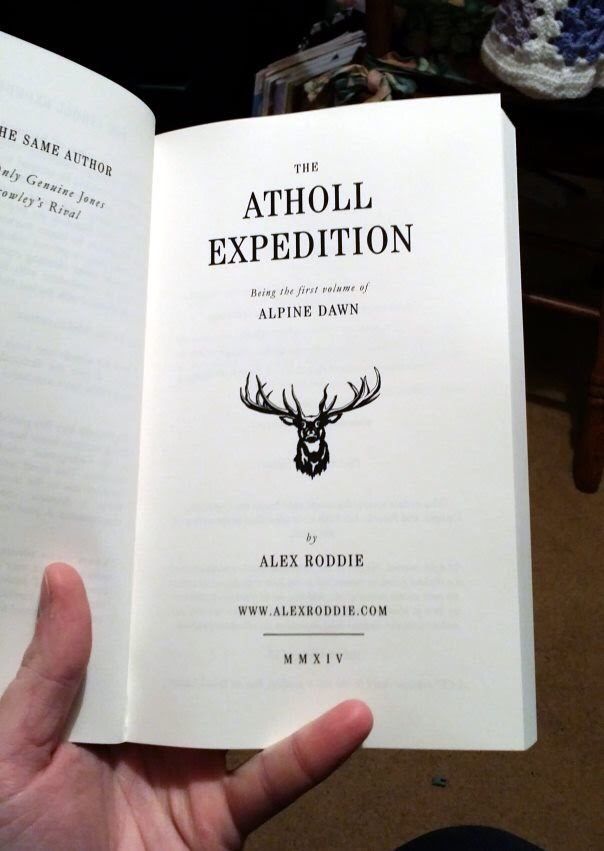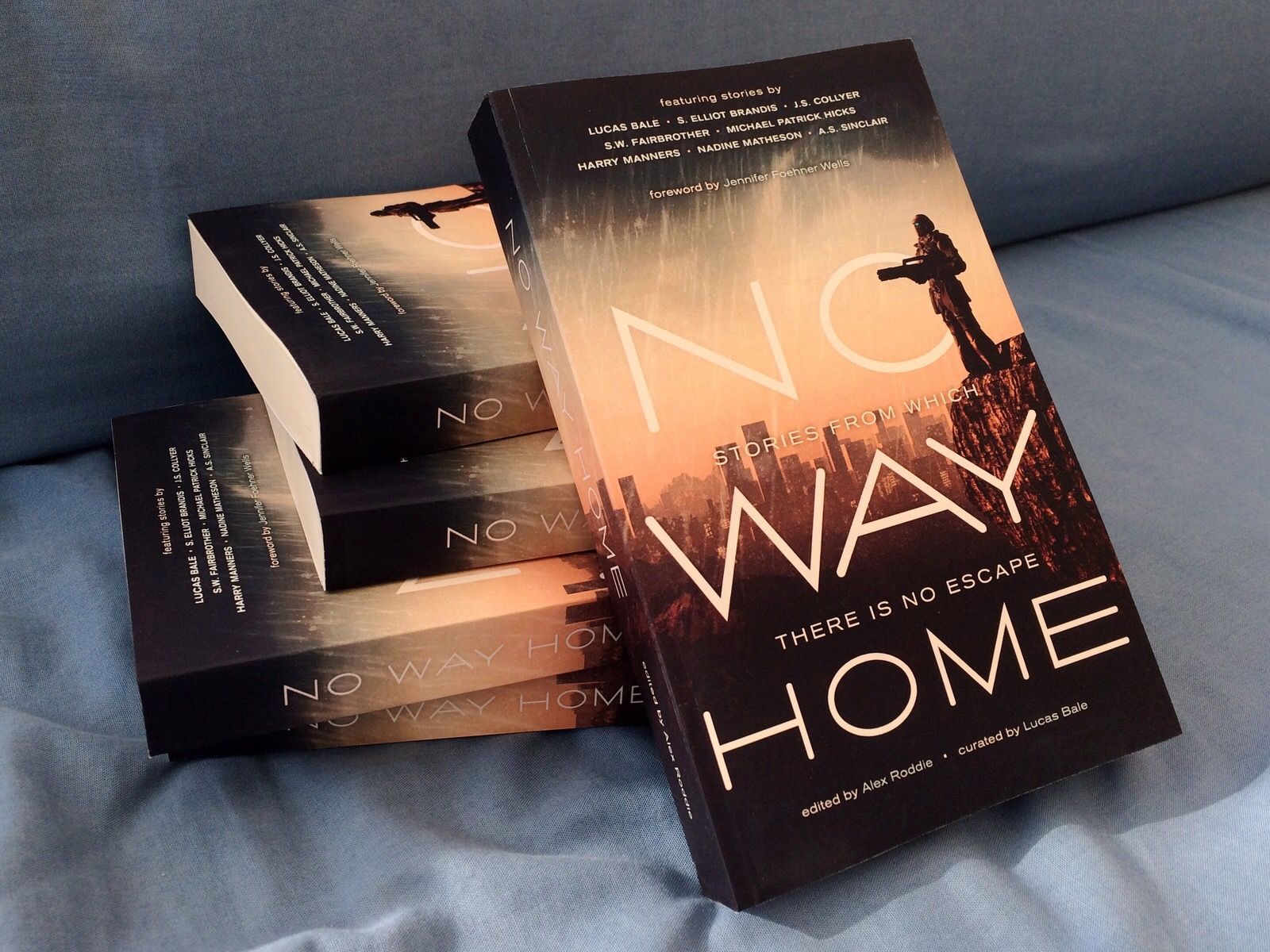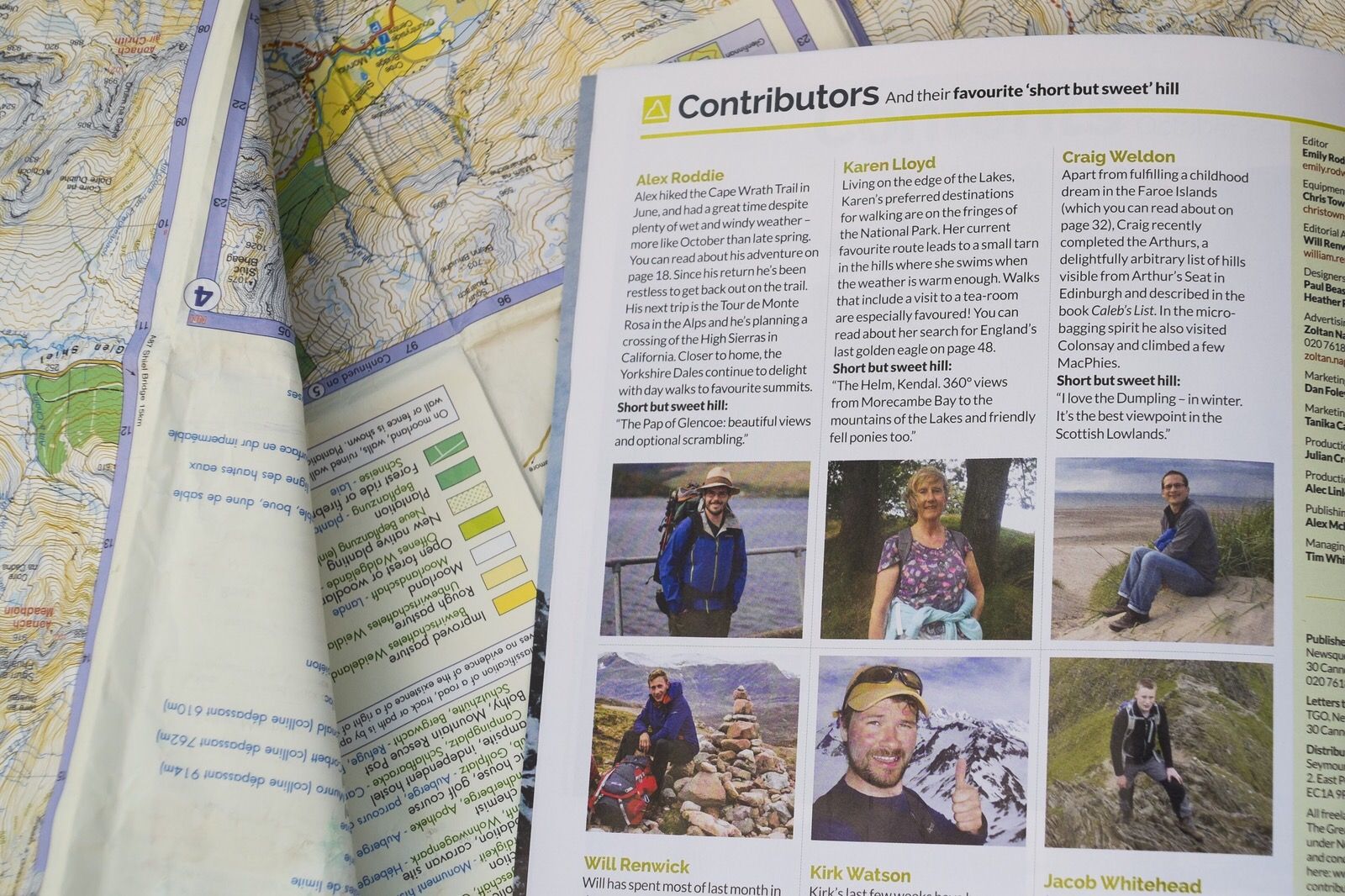Identity

For many years, I’ve struggled to define my identity as a writer. Here’s what I’ve learned this year, and how I’m going to change my approach to writing – both fiction and non-fiction.
Finding my voice online
I write about a diverse range of subjects on these pages. Over the years I’ve produced articles on writing, the English language, the highs and lows of independent self-publishing, consumer technology both new and old, and of course the outdoors, which continues to be my most popular subject by a large margin.
Over the years I have experimented with focusing and defocusing my efforts on this website. A decade ago it was exclusively about writing. In 2009 I started publishing mountaineering articles on Glencoe Mountaineer. I transformed alexroddie.com into an author website back in 2011, but it has gradually diversified again since, in spite of attempts to write regularly on tech1 and the world of publishing elsewhere.2
Right now, alexroddie.com is not what I really want it to be. The website is more popular than ever before – partly due to the highly successful visual redesign earlier this year, I think – but it does not meet my own expectations of what I want to be producing. It doesn’t fit my vision, and I think that’s down to the unresolved question of my identity as a writer.
I need to start looking at the bigger picture.
The realities of being an author
When most people think ‘writing’, they think books. And for a long time, when people thought ‘Alex Roddie’, I wanted them to think novelist.
I published my first book in 2012, and worked hard in 2013 to produce the second. Back then, I was working as a mobile phone salesman to make ends meet, and writing in my spare time. It worked pretty well, except for a few small problems:
- I didn’t enjoy my day job, and I wasn’t very good at it.
- Finding time to go into the mountains was extremely difficult, which was a problem because I needed quality mountain time to write mountain fiction.
- I wanted to write full time, or thought I did.
The goal was to quit my day job and support myself entirely through writing. It’s a common narrative amongst writers, and has attained almost mythical status – I quit the day job is a magical phrase that instantly makes the reader imagine how they might do the same thing.

I achieved my dream in July 2014. I quit my job at Carphone Warehouse and embarked on a career as a freelance editor and proofreader.
Working from home as an editorial professional taught me that writing is not a mystical process of inspiration and romance – it’s hard graft that has to be worked at and constantly refined. I now spend all my working hours reading the work of others, analysing storylines and characters, breaking down sentences and rebuilding them to convey meaning and voice more elegantly and without grammatical errors.
The truth of being self-employed is that work has to earn money
My fiction has suffered this year. There’s no denying it. While I’ve been concentrating on growing Pinnacle Editorial, finding the long blocks of uninterrupted time necessary to bring a novel to fruition has been almost impossible. But I keep kidding myself. There’s a folder on my desktop full of notes and scenes from the novel I’ve been trying to understand and write for a long time now, the novel that pre-dates The Atholl Expedition and even The Only Genuine Jones, and that I’ve been promising for years.
But the truth of being self-employed is that work has to earn money, and earning (enough) money from being a novelist requires more time and energy than I possess in my line of work. Short stories are different; I can write a short story in a week if I hit the ground running, and I’ve written a number of speculative fiction shorts this year3. It’s a format far more compatible with my present circumstances, and something I really enjoy
.
So here’s a truth I’ve been avoiding for a while. From now on – since summer 2014, actually – writing fiction is a hobby for me. I am putting novels and huge fiction projects aside for the time being and working on shorter, more agile pieces that require less of a time investment to complete. That means new genres and a range of ideas: science fiction, historical fiction, potentially others I haven’t experimented with yet.
I’m sorry to disappoint the fans of my novels, but this isn’t a full stop on my historical mountain fiction – it’s simply a realistic look at my priorities, and as I hope to demonstrate I think this will enable me to publish more in the future, not less.
Paid work versus free content, and the meaning of value
My quest to make writing pay has driven me towards non-fiction. I’ve been gradually expanding my portfolio of published non-fiction for years, but I’ve achieved greater success this year with higher-profile outdoor articles in national magazines and online publications. To my surprise and delight, the feedback I’ve received on my outdoor writing has been spectacular, with many readers emailing me with enthusiastic praise and feedback (plus some criticism too).
There’s no direct correlation between how much money I receive for an article and how much value the reader finds in it
Outdoor writing has become a vital part of my business. I enjoy it more than any other kind of writing, and it pays well enough to more than justify the time and effort. The sheer adventure of it is the very spice of life, too, and I get thrills just thinking about the journeys I’ve planned for 2016.

Outdoor writing has been the mainstay of this website for years, but my site has never been directly ‘monetised’ (I hate that word). I don’t have ads on here and I never will. Until recently I had never considered a membership or sponsorship model, and although I am thinking about something like that in future, right now website content is not directly earning me money.
But, actually, there’s no direct correlation between how much money I receive for an article and how much value the reader finds in it. Some of my most valuable words have been published right here on these pages, or on Glencoe Mountaineer – articles composed in the wilderness and published in haste, maybe not as considered as something I’d write at my desk and perhaps littered with errors, but valuable nevertheless. I receive no financial reward for these words, yet they’re some of the most worthwhile I have ever written. And I would not change that for anything.
This has been a slow realisation. Blogs, we’re told, are on the decline, but I haven’t really thought of my website as a ‘blog’ in the old-fashioned sense for a while now. This is my own publishing platform, and I need to recognise the value it offers to my readers.

Putting together the pieces
I think I’ve identified the problems I’d been having with my identity as a writer.
- I’m not really a novelist right now, but I’ve been much too slow in changing the way I project myself online. I think I’ve confused readers due to my own confusion, or perhaps a subconscious unwillingness to accept what has actually been a very positive change.
- Because I couldn’t adequately define my own identity, I’ve been quite bad at communicating the other writing I do in any coherent way. For example, I published my first speculative fiction story under a pseudonym for fear of confusing readers, a decision I have since reversed.
- The simple truth is that I’m a freelance writer and editor, I work in multiple genres, and I write for several different audiences. Other things feed back into the whole package; I’m a photographer too, for example. It’s a lot simpler than I thought.
- This website, my own independent platform, is far more important than I’ve given it credit for recently. It isn’t just a blog – it’s the central hub for all my work, editorial, writing and adventure combined, and I need to start treating it as an important place to publish my work rather than the dumping-bin of words I couldn’t or wouldn’t sell. I have published good work here this year, but I can do a lot better.
So here’s what’s going to happen
Writing is a vital part of my business and who I am. That is not going to change. But I will accept my limitations, stop beating myself up when another year passes without a novel being released, and focus on what matters: writing words that mean something, and provide value, for the people who read my stuff.
Specifically, that means I’m going to start taking my writing on this website a lot more seriously. I aim to improve both quality and quantity, publishing more articles and to a higher standard. I want alexroddie.com to be a showcase of my best writing, not an afterthought.
Who knows? One day I may even find time to finish my long-suffering novel. But for now it’s enough to write when I can, and know that people are finding value in what I write.
- Macintosh HD was a small site I started in 2013, mainly to talk about my interest in vintage computing. It was a fun sideline but I eventually decided to cancel the project several months ago. ↩︎
- Pinnacle Editorial continues to grow and is my primary source of income, but I’m guilty of neglecting the website, and particularly the blog, despite an initial crop of strong articles. ↩︎
- I recently published Cold Witness, my first scifi story, and my second is coming out next week as part of the new Crime and Punishment anthology. Keep an eye out for news of an alternate history story I’ve just finished writing, too. ↩︎
Alex Roddie Newsletter
Subscribe here to receive my occasional personal newsletter in your inbox. (For the fun stuff, please consider subscribing to Alpenglow Journal instead!)



